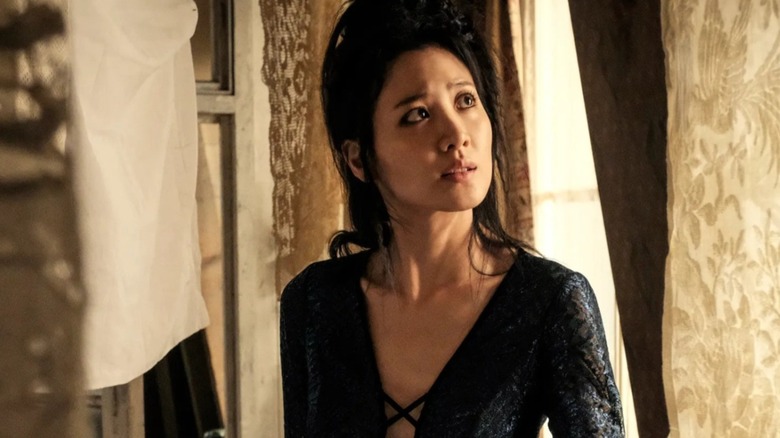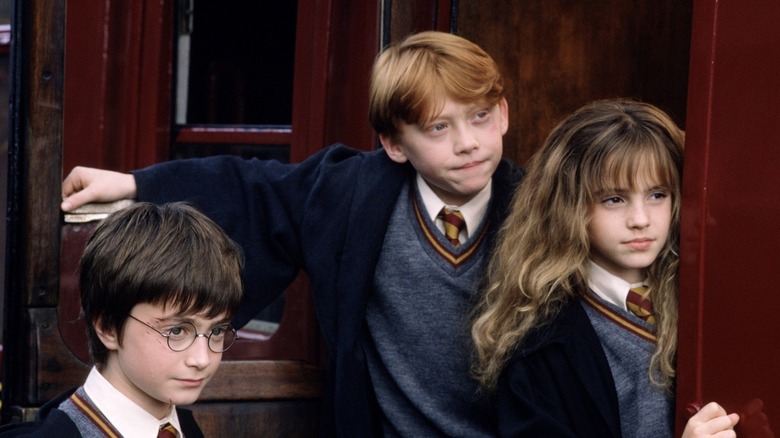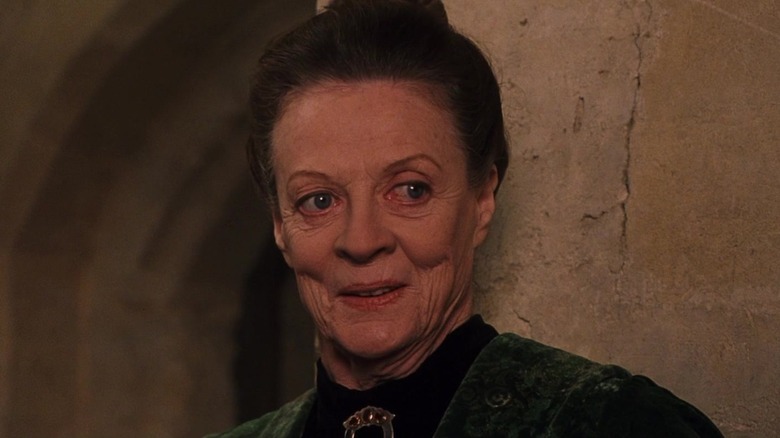The Harry Potter TV Series Must Rectify These JK Rowling Mistakes

In case you haven’t heard, a “Harry Potter” TV show is coming to HBO and controversial creator J.K. Rowling is involved. Rowling’s anti-trans comments have cast a Dementor-sized shadow over the upcoming project, which is one of the main reasons why the series could be destined to flop. That said, the author’s polarizing personal stances aren’t the only thing that could potentially damage the show’s success, as she’s been known to make unwelcome creative changes to the “Harry Potter” lore throughout the years.
Ever since the Boy Wizard’s literary adventures came to an end, Rowling has retconned numerous elements of the stories — usually on social media — and killed some of the magic. The writer’s post-publication additions to Wizarding World lore encompass everything from changes to characters’ backstories to revelations about pooping … and let’s just say the updates haven’t been universally praised. If Rowling insists on implementing these ideas in the HBO series, it may prove more devastating than Voldemort unloading an “Avada Kedavra” curse on a hapless victim, and the show’s planned 10-year run could be cut unceremoniously short.
On the flip side, the television series is an opportunity for Rowling to fix some of these mistakes and restore the magic that made “Harry Potter” so appealing to millions of people in the first place. With that in mind, let’s look at some of the worst examples of the author’s retconning and posit how the HBO adaptation can clear things up.
Some of JK Rowling’s changes damaged the Harry Potter lore
J.K. Rowling’s retconning is arguably a reaction to fans’ everlasting obsession with all things “Harry Potter.” People want to know more about the Wizarding World, and while the untold trivia is interesting, some of the author’s post-publication revelations come across as forced and insincere. For example, did we really need to know that magic folk once used their abilities to dispose of their poop before they embraced Muggle toilet systems? Probably not, but that isn’t even the most pointless — or confusing — piece of information Rowling has shared.
Let’s talk about the decision to make Nagini a human of Asian descent before she became Voldemort’s pet snake. “Fantastic Beasts: The Crimes of Grindelwald” — which is set 70 years before the main “Harry Potter” narrative — explores this topic, and Rowling put in the work on social media to justify it, revealing that the character is a Maledictus, i.e. a person cursed to transform into a creature. There is nothing inherently wrong with giving Nagini a backstory, but the fact it isn’t even hinted at in the “Harry Potter” books makes it redundant. Not only that, but the retconning of Nagini has also been criticized as a shallow attempt to force diversity into a franchise that lacks it — and it isn’t the only example of this specific issue at play.
Rowling has claimed that Hermione’s race isn’t explicitly mentioned in the books, even though a passage in “Harry Potter and the Prisoner of Azkaban” describes her face specifically as white — and Emma Watson’s now-famous portrayal of the character has further solidified this notion. The author also made a big deal out of Dumbledore being gay, which isn’t brought up in the books at all. Representation is a good thing, but confirming it on X (formerly known as Twitter) years later — as opposed to conveying it on the page — makes it meaningless and confusing. (The “Fantastic Beasts” movie didn’t do a whole lot with this idea either.) So, how can the upcoming show make sense of these changes?
How the Harry Potter HBO series can clear things up
JK Rowling’s attempts to retcon “Harry Potter” haven’t landed the way she hoped. There is an argument to be made that her updates are a reaction to the fandom’s refusal to let the story end, but the author’s revelations aren’t consistent with her original storytelling. Fortunately for her, the HBO series is an opportunity to meaningfully integrate some of these ideas into a compelling narrative (while also burying the pointless ones).
Arabella Stanton’s casting as Hermione in HBO’s “Harry Potter” adaptation proves that the creators are embracing some of Rowling’s changes. By putting a young, mixed race performer in the role, Hermione can now be established as a person of color — as Rowling supposedly intended her to be — and clear up any lingering doubts about her identity. Elsewhere, the show needs to either legitimize the idea that Nagini was once human or, better yet, ignore it. The negative reaction to the character’s retconning suggests that fans preferred her as merely a snake, as opposed to an Asian woman who became a race-purist wizard’s pet. But if she must be a Maledictus, the HBO series should address it in a way that’s compelling and warranted.
Most of Rowling’s retconned backstories are unnecessary, but others demonstrate a lack of attention to detail. Take, for instance, Professor McGonagall’s (Fiona Glascott) appearances in the “Fantastic Beasts” franchise, where she is shown teaching at Hogwarts in the 1920s and ’30s. However, the Pottermore website — which is Rowling-approved canon — reveals that the character was born in 1935, so how could she be an adult during the “Fantastic Beasts” timeline? Still, Rowling has been known to update the professor’s backstory from time to time, and some of it deserves to be explored in the HBO series.
One of JK Rowling’s changes is worth keeping
Let’s face it: Minerva McGonagall thrived when we didn’t know much about her. The original “Harry Potter” books — and their subsequent movie adaptations — portray her as a strong, no-nonsense professor who commands respect simply by being herself. “Harry Potter and the Order of the Phoenix,” which takes place in the mid-1990s, also reveals that she’s been teaching at Hogwarts for 39 years by that point, which contradicts the aforementioned “Fantastic Beasts” timeline. The upcoming TV series should stick to the original plan, but it can also implement some of Rowling’s original additions to McGonagall’s lore to remove the stench of her confusing appearances in the prequel movies.
Prior to “Fantastic Beasts” retconning McGonagall’s history, Rowling penned an informative biography on Pottermore in which the future Head of Gryffindor was engaged to a Muggle farmer but ultimately chose a life of magic at the expense of romance. It’s a tragic tale in some ways, but McGonagall’s decision also reinforced her agency and ambition, making her even more admirable. She later found love with a member of the Ministry of Magic — only for him to die after being bitten by Venomous Tentacula. Did we need to know this? Not really, but it’s pretty interesting.
The HBO series doesn’t have to dive into McGonagall’s original history in great detail, but alluding to it should be enough to dismiss the confusing mess that is her background in “Fantastic Beasts,” while also adding more depth to an otherwise mysterious character. At the very least, it’d bring some consistency back to the Wizarding World’s timeline — and end the fan debates about McGonagall using a Time Turner in order to teach at Hogwarts before she was even born. Rowling has since amended the professor’s biography to reflect her appearances in “Fantastic Beasts,” despite the books contradicting it, so maybe it’s time to go back to the original idea and leave it at that.
HBO’s “Harry Potter” seres is slated to premiere on HBO and HBO Max in 2027.
Source link









